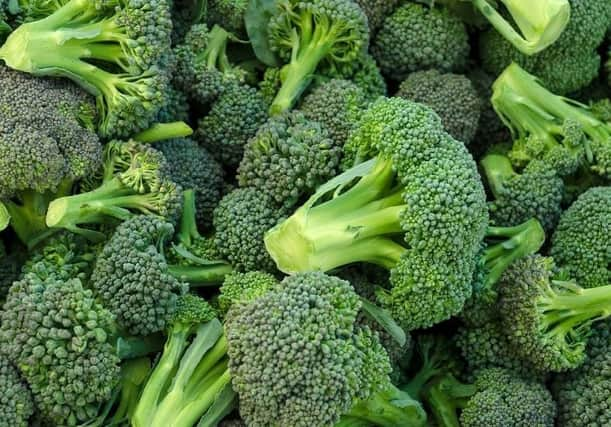Broccoli-based yoghurt 'can beat bowel cancer'


A broccoli-based yoghurt could prevent - and even cure - bowel cancer, according to new research.
Experiments on mice found the yoghurt made from the "superfood" destroyed tumours - and scientists are hopeful it will be just as successful for humans.
Advertisement
Hide AdAdvertisement
Hide AdEating plenty of the high-fibre cruciferous vegetable is already known to reduce the risk of the UK's second biggest cancer killer.
Scientists say that it contains high amounts of a powerful cancer fighting chemical called sulforaphane.
Now a team at the National University of Singapore has harnessed its power alongside friendly bacteria in the gut, known as probiotics, to create a disease busting formula.
In tests it killed almost all bowel cancer cells grown in a laboratory. Then, strikingly, the combination of yoghurt and veg killed 75 percent of tumours in mice with the disease.
Advertisement
Hide AdAdvertisement
Hide AdThe tumours that were detected in the rodents were also three times smaller than in a group not fed the mixture.
Probiotic prevention
Professor Matthew Chang and Dr Chun-Loong Ho see it being used in two ways - both as prevention and to get rid of remaining cancer cells after surgical removal of tumours.
And one day people may be able to take probiotics as a dietary supplement, along with their broccoli, to ward off the disease, or reduce the risk of it returning.
Prof Chang said: "One exciting aspect of our strategy is that it just capitalizes on our lifestyle, potentially transforming our normal diet into a sustainable, low-cost therapeutic regimen.
Advertisement
Hide AdAdvertisement
Hide Ad"We hope that our strategy can be a useful complement to current cancer therapies."
The researchers, whose study is published in Nature Biomedical Engineering, said with these special bacteria a dose of broccoli a day can keep the cancer doctor away.
Bowel cancer is one of the most common cancers, especially the developed world, owing to unhealthy diets.
Although the five year survival rates for earlier stages are relatively good, when it ios more advanced this goes down alarmingly, and the risk of recurrence goes up considerably.
Advertisement
Hide AdAdvertisement
Hide AdProf Chang's team found a way to turn a humble cocktail of bacteria and vegetables into a targeted system that seeks out and kills diseased cells.
They engineered a harmless form of bacteria called E. coli Nissle, which is found in the gut.
Using genetic techniques they developed it into a probiotic that attached to the surface of bowel cancer cells and secreted an enzyme to convert a substance found in broccoli and other cruciferous vegetables into a potent anti cancer agent.
The idea was for the cancer cells in the vicinity to take up this chemical and be killed. Normal cells cannot do this conversion, nor are they affected by the toxin, so the system should be targeted only to bowel cancer cells.
Cancer killer
Advertisement
Hide AdAdvertisement
Hide AdTrue enough, the mixture of probiotics and broccoli extract or water containing the dietary substance killed more than 95 percent of colorectal cancer cells in a dish.
Moreover, the mixture had no effect on cells from other types of cancer such as breast and stomach cancer.
Dr Ho added: "Mothers are right after all, eating vegetables is important."
Previous US research has shown good gut bacteria work a crucial magic on digesting broccoli, helping to release and absorb sulforaphane into the body.
Advertisement
Hide AdAdvertisement
Hide AdBroccoli is special in that it is a rich source of sulforaphane, and eating less than one daily serving of broccoli is shown to be enough to have an anti-cancer effect.
With many of the other bioactive foods you hear about, vast amounts are required for a measurable outcome.
Each year around 16,000 people in Britain die of bowel cancer. More than 40,000 people are diagnosed each year, making it the fourth most common form of the disease.
Around 110 people are diagnosed with bowel cancer every day - an average of one every 15 minutes. But if diagnosed early, more than 90 per cent of cases can be treated successfully.